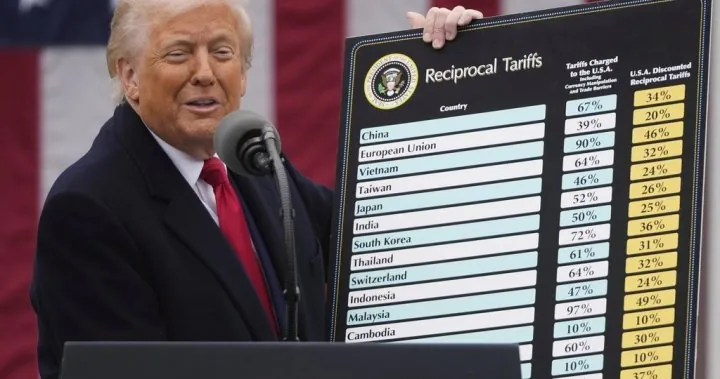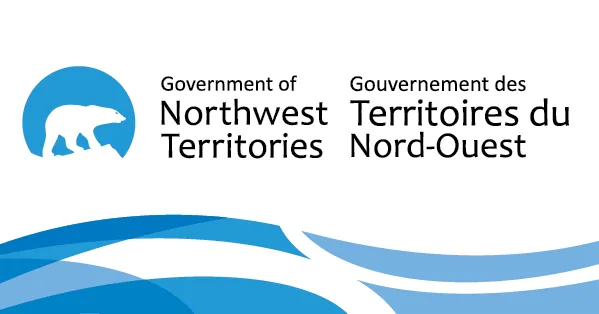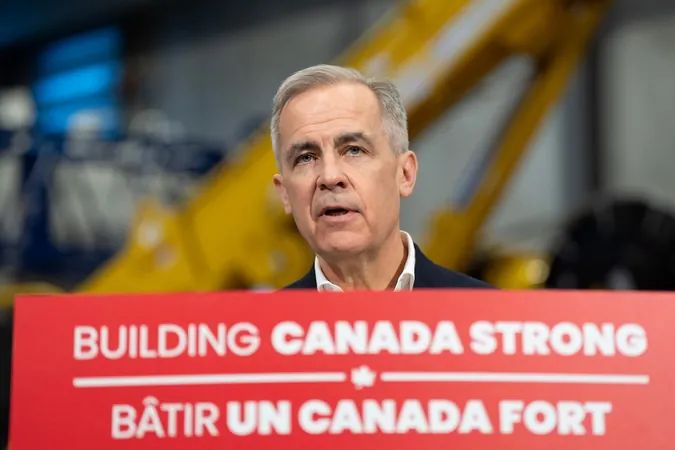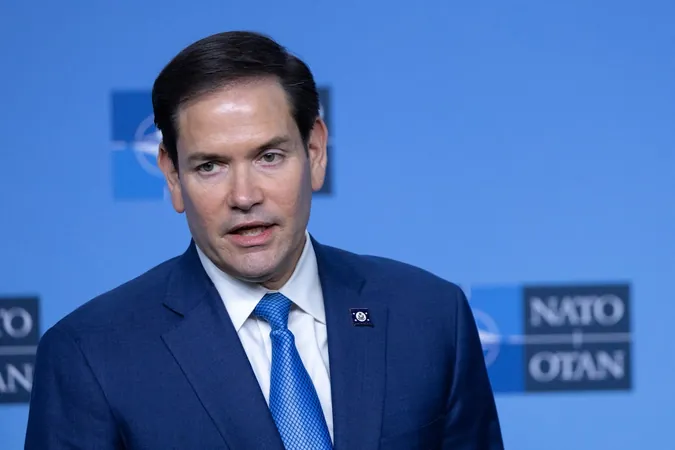
Trump Unleashes Global Tariffs: Canada Safe for Now, Economic Shockwaves Ahead!
2025-04-02
Author: Olivia
Introduction
In a bold move destined to reshape international trade, U.S. President Donald Trump signed an executive order on Wednesday, unveiling a series of unprecedented "reciprocal tariffs." This new policy signifies a potential escalation in global trade tensions, but notably, Canada has been spared for the time being.
Details of the Tariffs
A statement released by the White House clarified that the existing tariffs on goods from Canada and Mexico, which had been implemented earlier this year, will remain unchanged. Under the provisions of the United States-Mexico-Canada Agreement (USMCA)—known as CUSMA in Canada—goods compliant with its regulations will continue to enjoy zero tariffs. In contrast, non-compliant goods will incur tariffs ranging from 25% to 10%.
Rationale Behind the Tariffs
The tariffs are part of Trump's strategy to counter what he describes as unfair trading practices. The president specifically cited the flow of fentanyl into the U.S. as a national emergency, justifying his previous tariffs under the International Emergency Economic Powers Act (IEEPA).
Impact on Global Trade
During a dramatic announcement in the Rose Garden, Trump emphasized that China would face the steepest tariffs at 34%. Other countries, including the European Union and Japan, will also feel the pressure, with tariffs set at 20% and 24%, respectively. The groundwork for these tariffs points to a minimum baseline rate of 10% on imports from nations that impose tariffs on American goods.
Effects on Weaker Economies
This policy could profoundly affect countries with weaker economies, as some of the most substantial tariffs are being aimed at poorer nations, with Lesotho facing a staggering 50%. Such high rates may stoke economic instability in these regions, further exaggerating global inequities.
Canadian Government Response
The implications of this tariff announcement extend beyond U.S. borders. Canadian Prime Minister Mark Carney, leading the Liberal Party, responded cautiously, recognizing the urgency for Canada to craft counter-tariffs that minimize damage to its own economy while targeting the U.S. effectively. Carney's approach suggests a potential reevaluation of Canadian trade policies, especially in the face of increasing pressures from U.S. protectionism.
Political Reactions in Canada
As political leaders brace for repercussions, it has become evident that the trade war will be a focal point in the upcoming Canadian federal elections, scheduled for April 28. Opposition leaders, including Conservative Leader Pierre Poilievre and NDP Leader Jagmeet Singh, are rallying public support against U.S. trading tactics while stressing the importance of protecting Canadian jobs. Poilievre advocates for "targeted reciprocal tariffs," aiming to balance the impact on Canadian and American industries, whereas Singh has characterized Trump as an "arsonist," damaging economies through reckless decisions.
Calls for Diplomatic Solutions
Meanwhile, Ontario Premier Doug Ford weighed in, stating Trump's robust tariff measures could lead to job losses on both sides of the border, calling for a more diplomatic approach to the trade relationship between the U.S. and Canada.
Conclusion
In this climate of economic uncertainty, Foreign Affairs Minister Melanie Joly emphasized Canada's resilience, asserting that Canada would continue to stand firm against the U.S. tariffs while seeking constructive solutions. As potential fallout from these tariffs continues to unfold, both countries may be on the verge of a significant trade battle, making it crucial for Canadian leaders to remain perceptive and strategic in their responses to protect the economy from a full-blown trade war. The coming days will undoubtedly be critical in shaping the future of North American trade relations.









 Brasil (PT)
Brasil (PT)
 Canada (EN)
Canada (EN)
 Chile (ES)
Chile (ES)
 Česko (CS)
Česko (CS)
 대한민국 (KO)
대한민국 (KO)
 España (ES)
España (ES)
 France (FR)
France (FR)
 Hong Kong (EN)
Hong Kong (EN)
 Italia (IT)
Italia (IT)
 日本 (JA)
日本 (JA)
 Magyarország (HU)
Magyarország (HU)
 Norge (NO)
Norge (NO)
 Polska (PL)
Polska (PL)
 Schweiz (DE)
Schweiz (DE)
 Singapore (EN)
Singapore (EN)
 Sverige (SV)
Sverige (SV)
 Suomi (FI)
Suomi (FI)
 Türkiye (TR)
Türkiye (TR)
 الإمارات العربية المتحدة (AR)
الإمارات العربية المتحدة (AR)